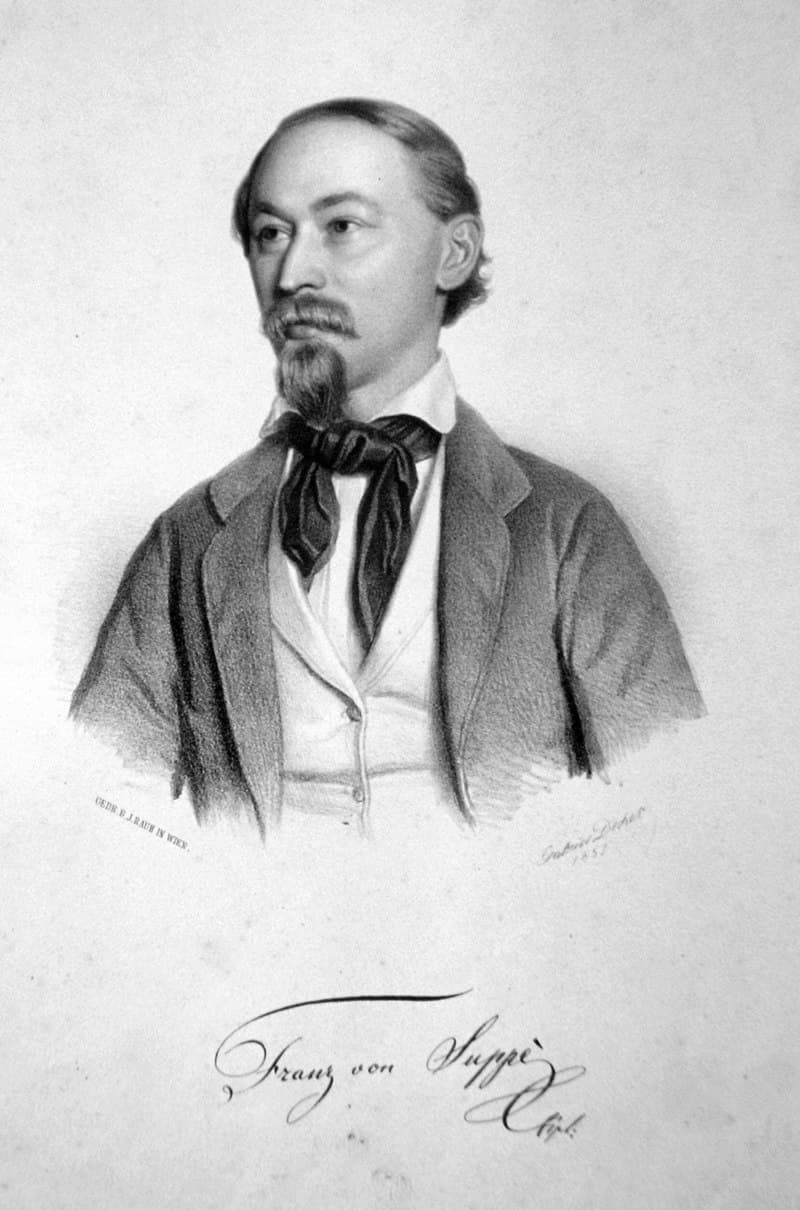The Austrian dramatist Franz Xaver Told (1793–1849) had a home on the stage of the Theater in der Josefstadt in Vienna, producing a large number of plays for the theatre. He was talented, but worked so quickly that most of his works are now forgotten – a play today and gone tomorrow. He was also known for his parodies of other Viennese stage works, but, as with most topical parodies, have little meaning today.
In addition to his plays, he also wrote a number of opera librettos, the most popular of which was Der Zauberschleier (The Magic Veil), based on a text by Eugène Scribe and set to music in 1842 by Anton Emil Titl. In 1844, he wrote the libretto for the comedy Ein Morgen, ein Mittag und ein Abend in Wien (Morning, Noon and Night in Vienna) for which Franz von Suppé (1819–1895) wrote the overture.

Franz von Suppé
The opera, called a Lokales Gemälde (local painting), depicts everyday life in Vienna, with ‘breakfast in the Graben, lunch in the Prater, and a nocturnal assignation in the gardens of Schönbrunn.’
The opera was, unfortunately, not a success, closing after only 3 performances. The overture, on the other hand, has remained in the repertoire. There’s much in the music that reflects von Suppé’s studies of Italian composers such as Rossini, Donizetti, and the young Verdi, all of whom he had met in Milan in 1843.
Franz von Suppé: Ein Morgen, ein Mittag, ein Abend in Wien (Morning, Noon and Night in Vienna) – Ouvertüre (Tonkünstler Orchestra; Ola Rudner, cond.)
The overture was written just 4 years after von Suppé had started as third Kapellmeister at the Theater in der Josefstadt. In 1845, Suppé became Kapellmeister at the Theater an der Wien where he remained for the next 17 years before moving to the Carltheater between 1863 and 1882.
Suppé created the Viennese operetta, which, unlike the Parisian operettas of Offenbach, did not rely on satire and parody, but on their use of beautiful melodies in the Italian style. His overtures (and some of his operas) still have a place on stages today. In a sense, his overture for Ein Morgen, ein Mittag und ein Abend in Wien was greater than the work it was written for – it has a beautiful cello solo and the opening section is full of Italian-style woodwind figures.
As a work of the youthful Suppé, it reveals what his later work would show so well – his ability to write beautiful melodies, set up dramatic situations, his mastery of orchestration, and the subtle use of academic techniques such as fugato.
For more of the best in classical music, sign up for our E-Newsletter
